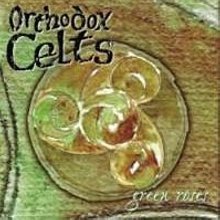
Orthodox Celts is a Serbian band formed in Belgrade in 1992 which plays Irish folk music combined with rock elements. Despite their uncharacteristic genre in their home country, the band has been one of the top acts of the Serbian rock scene since their formation, and has influenced a number of younger Serbian bands, most notably Irish Stew of Sindidun and Tir na n'Og.

Darkwood Dub was a Serbian alternative rock band formed in Belgrade in 1988. In the years after the formation the band gradually grew to prominence on the Serbian rock scene, eventually becoming one of the most notable acts of the 1990s and 2000s Serbian and regional scene. Their music spawned many different genres. It was characterized by a mixture of live drumming and electronic percussion with frequent use of slide guitar, synthesizers and samplers and succinct and introspective lyrics, sung with offbeat vocals of Dejan Vučetić. The band cooperated with a number of musicians—most notably prominent jazz musicians Vasil Hadžimanov and Bisera Veletanlić—and composed scores for several films and theatre plays. The group released eight studio albums before disbanding in 2017.

Block Out was a Serbian alternative rock band formed in Belgrade in 1990. They were one of the most notable acts of the 1990s Serbian rock scene.

Deca Loših Muzičara, often abbreviated to DLM, are a Serbian funk rock band formed in Belgrade in 1988. They were one of the most prominent bands of the 1990s Serbian rock scene, gaining significant popularity as well as critical acclaim with their fast and furious but melodic funk rock sound, adorned with trumpet and saxophone lines.
Negative is a Serbian rock band formed in Belgrade in 1999. Fronted by vocalist Ivana Peters, the band enjoyed large popularity and was one of the most notable acts of the Serbian rock scene during the 2000s.
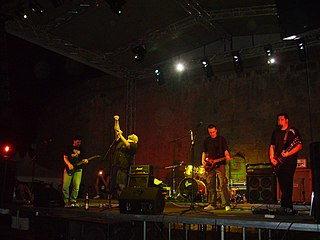
Bjesovi were a Serbian alternative rock band formed in Gornji Milanovac in 1989. The band was one of the most notable acts of the 1990s Serbian rock scene.

Vampiri are a Yugoslav and Serbian rock band from Belgrade. The band was formed in 1990, and performed music influenced by the 1950s doo-wop and rockabilly. After releasing two studio albums, they disbanded in 1993. The band reunited in 1995, releasing two more albums which featured a harder rock sound, only to disband for a second time in 1998. In 2012, the band reunited once again.
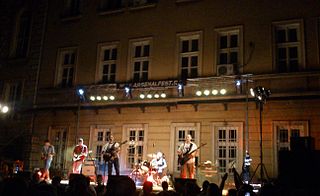
Babe is a Serbian rock band.

Familija was a Serbian rock supergroup from Belgrade, consisting of Vampiri, Košava and U Škripcu members. The band's musical style was a combination of ska, pop, ethnic and rock music.
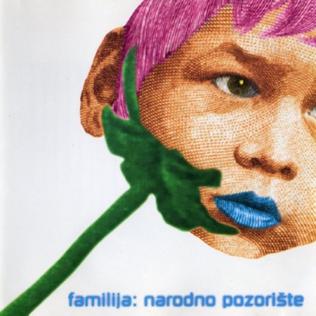
Narodno pozorište is the debut album by the Serbian rock supergroup Familija, released in 1995.

Dža ili Bu are a Serbian punk/alternative rock band formed in Belgrade in 1987. The band was one of the most prominent acts of the 1990s and 2000s Serbian rock scene. Dža ili Bu initially performed punk rock, but during the years incorporated elements of other genres into their sound, maintaining politically and socially provocative lyrical style throughout their whole career.
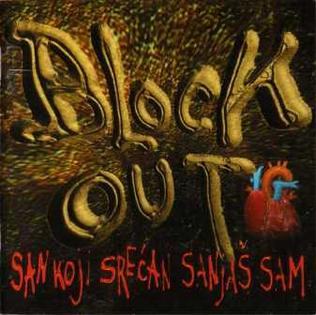
San koji srećan sanjaš sam is the third album by the Serbian alternative rock band Block Out, released by Metropolis Records in 1998. Considered to be one of the best Serbian rock albums ever. Some of the songs were predicting war cataclysm that hit FR Yugoslavia few months after the release of the album. The album was re-released by Multimedia records in 2004.

Braća Left was a Serbian alternative rock band formed in Belgrade in 1992. Founded by former Oktobar 1864 and Armagedon members, Braća Left was a prominent act of the 1990s Serbian rock scene.
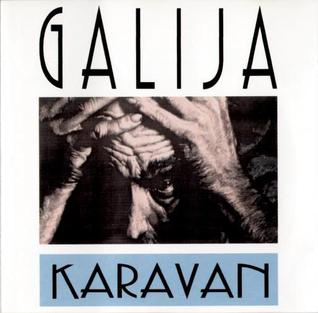
Karavan is the ninth studio album from Serbian and former Yugoslav rock band Galija. Karavan is the last album that was recorded in cooperation with the lyricist Radoman Kanjevac.

The Celts Strike Again is the second studio album by the Serbian Irish folk/Celtic rock band Orthodox Celts released in 1997.

A Moment Like the Longest Day is the fourth studio album by the Serbian Irish folk/Celtic rock band Orthodox Celts released in 2002.
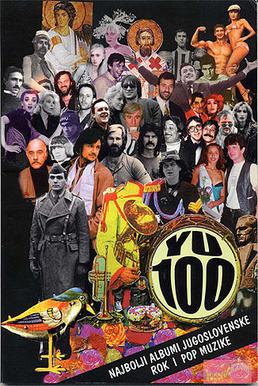
YU 100: najbolji albumi jugoslovenske rok i pop muzike is a book by Duško Antonić and Danilo Štrbac, published in 1998. It features a list of top 100 former Yugoslav popular music albums, formed according to the poll of 70 Serbian music critics, journalists, artists and others.

Pesme iznad istoka i zapada is an album comprising the works of various artists, released in 2001, featuring thirteen songs recorded by Serbian rock musicians based on the poems of Bishop Nikolaj Velimirović.
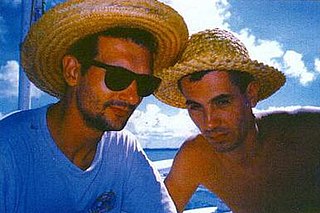
Angel's Breath was a project by Serbian and Yugoslav musicians Milan Mladenović and Mitar Subotić "Suba". Initially named Dah Anđela and founded in 1985 by the two musicians with the guitarist Goran Vejvoda, the project was reactivated in São Paulo, Brazil, where Subotić had moved to live in the early 1990s, with a lineup of Brazilian musicians.
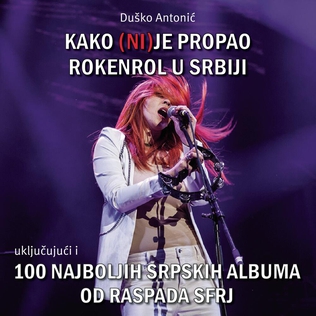
Kako (ni)je propao rokenrol u Srbiji is a book by Duško Antonić, published in 2021. The book features a number of Antonić's essays on Serbian rock scene, as well as a list of 100 best Serbian rock music albums published after the dissolution of SFR Yugoslavia. The list was formed according to the poll of 58 Serbian music journalists and critics, artists and others, similarly to the poll in the 1998 book YU 100: najbolji albumi jugoslovenske rok i pop muzike by Antonić and Danilo Štrbac.
